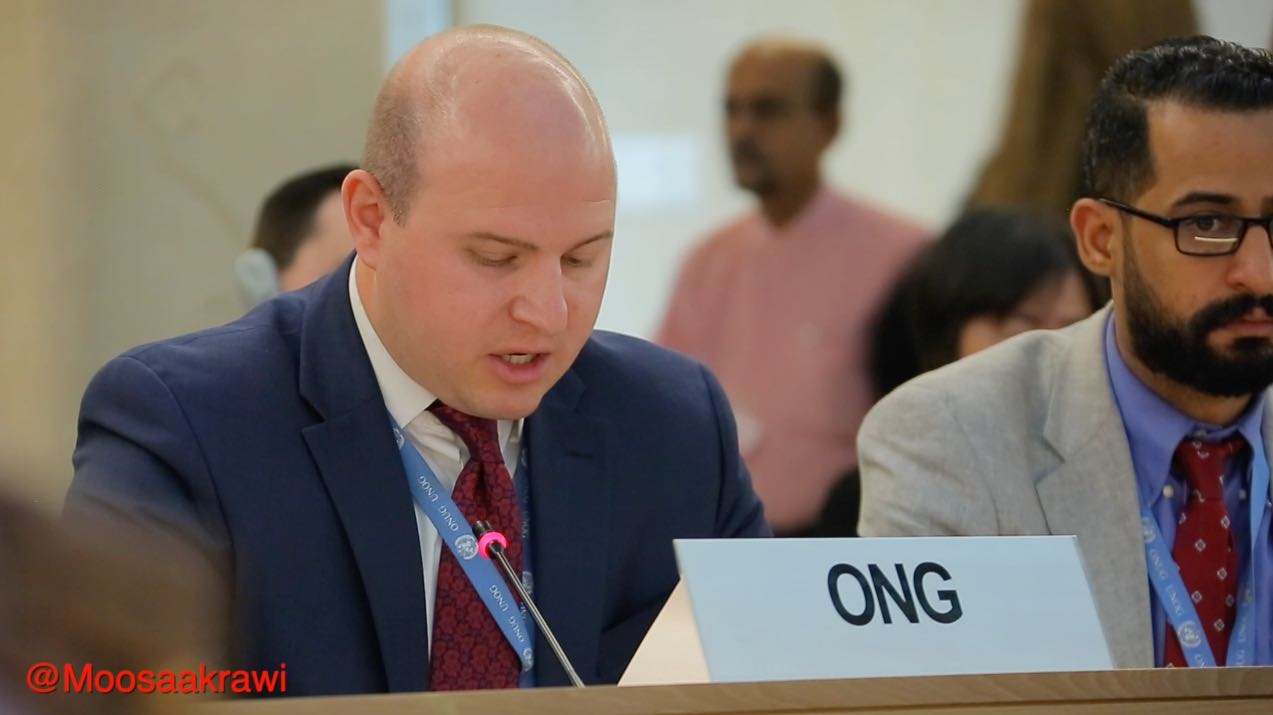On 21 September, during the 36th session of the Human Rights Council, ADHRB’s International Advocacy Officer Michael Payne delivered an oral intervention raising concerns during Bahrain’s 3rd Cycle Universal Periodic Review adoption. In his intervention, Payne noted the Bahraini government’s almost complete refusal to implement any of its previous UPR recommendations and its misleading National Report, which sought to downplay the significant deterioration in the condition of human rights over the past couple of years. Please continue reading for the text of his intervention, or click here for a PDF of his remarks.
Mr. President,
ADHRB would like to raise concerns over the Bahraini government’s declining engagement with the UPR process.
Since the midterm of Bahrain’s second UPR cycle in 2014, the government has not only failed to fully implement one of its 176 recommendations, but has actually regressed on what few reform areas had seen nominal progress.
In the run up to the third cycle in May 2017, the government further demonstrated its refusal to engage the process in good faith, submitting a National Report that is misleading, vague, and incomplete. This failure was gravely exacerbated by the government’s campaign to actively prevent independent Bahraini civil society from leaving the country to liaise with the international community. As a result of government interference – including widespread use of retaliatory travel bans and arbitrary detention – the number of independent Bahraini activists attending the UPR cycles dropped from 47 in 2012 to only 3 in 2017.
Now, this year, the government has chosen to flout even more of its obligations, accepting just 139 of the 175 recommendation clusters it received during the third cycle. That is 19 less than the 158 it fully or partially accepted in 2012.
Yet, as demonstrated by the rise in discreet recommendations the reiteration of so many previously unimplemented reform proposals, Bahrain’s human rights situation has only deteriorated since the second UPR cycle. Many of these recommendations continue to urge greater protections for freedom of expression and assembly; civil society and human rights defenders; and for the country’s marginalized Shia population.
It is therefore imperative that the international community take steps beyond the UPR mechanism to follow up on the letter and spirit of the range of recommendations offered here. We urge all recommending states to actively and regularly work to follow up on the prescriptions offered in this review, and hold Bahrain accountable for fulfilling its commitments today.
Thank you.
Photo credit: Moosa Mohammed





